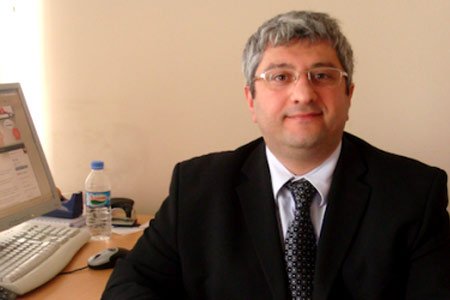The Hizmet movement and politics

Date posted: March 28, 2012
Dr. Ihsan Yilmaz, 28 March 2012, Wednesday
There has recently been criticism directed against the Hizmet movement that it has been or is becoming a political movement. Its adversaries keep making these accusations, and nothing can be done to convince them. But for anyone sincerely interested in what the movement is actually up to, some clarification needs to be made. This cannot be done without understanding the Gülenian conception of Islam-state-politics relations.
| Some have argued that the Hizmet movement is also a political movement. This actually depends on what one means by “politics.” On this, I agree with Fuller: “There is no doubt that the movement quite explicitly aspires to transform society through transformation of the individual, a process that could ultimately lead to collective calls for the creation of national and social institutions that reflect belief in a moral order. In a very loose sense, it is possible to call this a political project if we consider any attempt to transform society to be a political project. |
In contrast to the Kemalist and Islamist attitudes toward religion-state relations, what Tillich dubbed Gülen’s “ultimate concern” in this life focuses on the hereafter, spirituality and worship. He has constantly argued that Islam is more than a political ideology. He puts that “when those who have adopted Islam as a political ideology, rather than a religion in its true sense and function, review their activities and attitudes — which they claim to be based on Islam — the especially political ones will discover that they are usually moved by personal or national anger, hostility, and other similar motives.” As one scholar put it, he, of course, understands the problems and challenges facing Muslims in the contemporary age and deals “with them but he does not believe that politics is the most effective way to do so in the twenty-first century.” He does not see the world in political terms and does not draw imaginary boundaries. In the words of Graham Fuller, he “eschews politics in the belief that it leads to social divisiveness and distraction from the essential issues of values and principle. In fact, the movement opposes the creation of political parties founded on religion in general, believing that they end up compromising or contaminating religion and that they only serve to create social strife damaging to the position of religion in society.” As another scholar insists, he advocates working “in the interests of domestic social transformation by striving to outperform rivals in the market, rather than to overcome them in political confrontation.”
It is well known that Gülen has been advocating an interpretation of Islam that espouses the view that democracy and human rights, such as freedom of religion, are not against the main principles of Islam. He emphasizes that “Islam does not propose a certain unchangeable form of government or attempt to shape it. Instead, Islam establishes fundamental principles that orient a government’s general character, leaving it to the people to choose the type and form of government according to time and circumstances.” According to Gülen, fundamental Islamic political principles are the social contract and election of a group of people to debate common issues. He puts that “in Islam, ruling means a mutual contract between the ruler and the subject and it takes its legitimacy from the rule of law, and from the principle of the superiority of the law.” He is of the firm opinion that “it is impossible to prove in any way that Islam opposes democracy.”
| In the words of Graham Fuller, he (Fethullah Gulen) “eschews politics in the belief that it leads to social divisiveness and distraction from the essential issues of values and principle. In fact, the movement opposes the creation of political parties founded on religion in general, believing that they end up compromising or contaminating religion and that they only serve to create social strife damaging to the position of religion in society.” |
Some have argued that the Hizmet movement is also a political movement. This actually depends on what one means by “politics.” On this, I agree with Fuller: “There is no doubt that the movement quite explicitly aspires to transform society through transformation of the individual, a process that could ultimately lead to collective calls for the creation of national and social institutions that reflect belief in a moral order. In a very loose sense, it is possible to call this a political project if we consider any attempt to transform society to be a political project. But I would argue that it is just as much a social and moral project. Indeed, the term ‘political’ loses its meaning if applied equally to all efforts to transform society, regardless of means. Promotion of change through teachings, education, and information does not really become political until it formally and institutionally enters the political process.”
It must be added that even though Hizmet is not engaged in daily politics but works in the realm of civil society, it has, of course, concerns that need to be addressed by the political sphere. For instance, that is why for the sake of more freedoms the movement has been lobbying for Turkey’s European Union accession project and a new democratic constitution. Moreover, unlike the Islamists, Hizmet never legitimizes politics in the name of Islam. Even though Gülen has been discouraging his followers from entering politics, in the final analysis, individuals in this movement of volunteers have freedom to enter daily politics in their individual capacity, not as representatives of Hizmet or Islam. If they enter politics, they will be expected to jettison any representative role they might have within Hizmet.
Source: Today’s Zaman http://www.todayszaman.com/columnist-275685-the-hizmet-movement-and-politics.html
Tags: Defamation of Hizmet | Hizmet and politics |
























